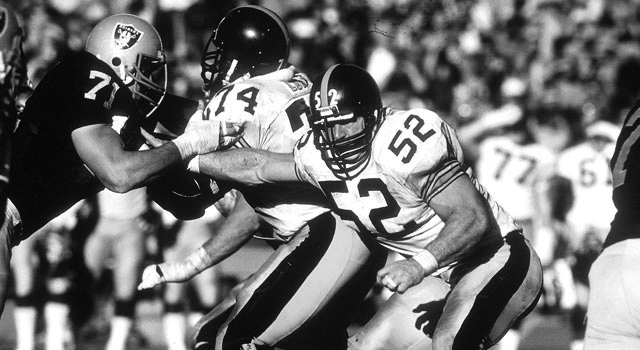By Anthony Gannon
Contributing Writer
Dr. Paul Butler is one of the early initiators of a type of controversy that will become common among high schools and local communities throughout the United States.
The issue?
Should football be banned?
Butler, a first term school board member in the Dover, N. H. district, is a former high school and college football player. His experience in the game and his reasons for why the game should be banned in school districts to protect children from the potential injuries possible are respectable.
Many members of the local community have criticized Butler for trying to take away Dover’s local pigskin satisfaction, according to CNN.com. Butler has already said he won’t run for re-election to the board, probably a good decision considering how some community members believe his advice on school football is an attention grab.
Thanks to the NFL’s recent disclosure that medical testing of former NFL players showed severe brain trauma later in life, the new hot topic has become choosing between the thrill and life lessons playing football can teach or the possibility of dealing with a chronic injury thanks to the sport.
“Football, unlike hockey, unlike lacrosse – both of which are violent games – football is the one where the head gets repeatedly banged,” Butler said.
I don’t know what position the good doctor played during his career, but he’s not big enough to have been an offensive lineman. He has based his assertions about head trauma on the experiences of other players because no position outside of offensive or defensive line deals with intense contact consistently the way linemen do.
Probably the greatest offensive lineman of all-time was the Pittsburgh Steelers’ Mike Webster. Webster was the literal mid-point of all four Steelers Super Bowl wins in the 70’s. Webster reached the Pro Football Hall of Fame in 1997. Mike only lived to be 50 thanks to the hits he suffered in over 245 consecutive games, although games doesn’t describe it fully. Gladiatorial clashes are a more accurate description. Those are just the games he started.
His son Garrett, who Mike had to live with throughout the final years of his life because he couldn’t take care of himself, tells a story of walking into his kitchen one day to see Mike relieving himself in to the stove, thinking it was toilet.
But if you asked Mike Webster how he felt about banning football, he would either politely ask you to leave or he would rudely tell you to leave. Mike loved football and he understood what professional football represents to millions of former players. The love of the game is not a fault. It builds bridges across generations of people and every player has a story.
Mike Webster serves as an example to professional football players about what can happen if you don’t take a break when you get your bell rung. He’s an example of the harm that comes from holding on to the game for too long. But since 99 percent of football players don’t reach the NFL, we don’t have to martyr Mike in the name of player safety in an act of attention-grabbing.
It’s the responsibility of the people watching over the players to make sure they’re trained and conditioned as best as they can be to avoid physical injuries. Deep mental injuries from football take more time to appear, but coaches and medical professionals are trained to spot signs of concussions among football players to prevent the mental damage possible from returning to the game too early.
Was it only 100 years ago Teddy Roosevelt was considering banning football because it was too violent?
Butler played during a time when the game was much rougher and the equipment was not as reliable. For him to consider turning his back on the game that got him through college and deny that same opportunity to students not just found in Dover but in Texas, Florida, Ohio, Pennsylvania, California and even New York City takes an immense level of concern. Whether that concern is for the safety of the children or Butler’s brand name is up for debate.
Who knows, maybe the hits did take their toll on Butler, but how to exploit the traumatic injuries of others isn’t a lesson learned through football.







